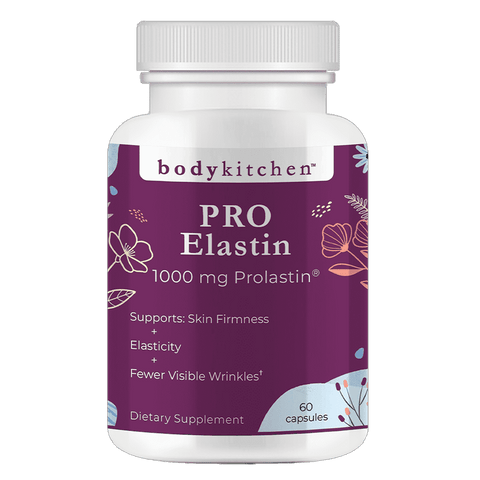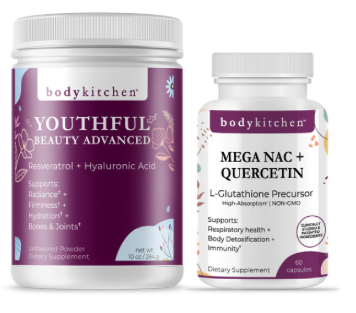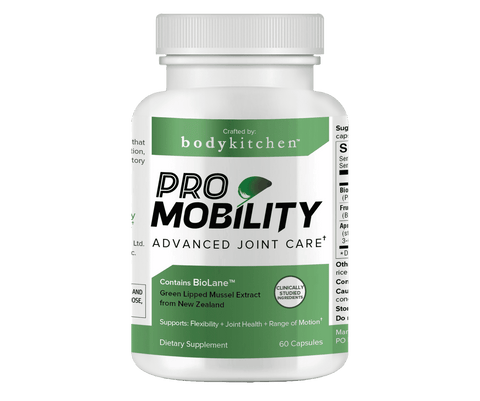How to Regulate Blood Pressure Naturally with Polyphenols
You’ve heard it countless times, and you’ll hear it countless more:
“Eat more fruits and vegetables.”
This dietary rule of thumb has seemingly been around forever. Yet, in the past few decades, technological advancements and rigorous scientific research have uncovered deeper truths about the benefits of eating diets rich in fruits and vegetables
Even without having to look at the specific reasons for complying with this standard health recommendation, it still makes plenty of sense on its surface.
After all, it’s widely known that fruits and vegetables are natural sources of essential vitamins and minerals that make your body jump for joy. In fact, you’d be hard-pressed to find someone who disagrees with that view.
But why exactly is this the case?
What’s happening in your body beyond the simplistic proclamation of “eat them because they’re good for you”?
In this article, we’ll take a closer look at one of the many beneficial phytonutrients (healthy compounds produced by plants) that go to bat for your body, called polyphenols. We’ll also examine how they can help regulate blood pressure, alleviate hypertension, and improve overall cardiovascular health.
What are polyphenols?
Polyphenols are compounds found in plant foods, like vegetables and fruits, and products derived from them, like dark chocolate (cocoa), coffee (coffee beans), green tea (tea plant), and wine (grapes).
So far, over 8,000 varieties of polyphenols have been discovered, which can all be sub-categorized into four primary classes:
- Phenolic Acids
- Flavonoids
- Stilbenes
- Lignans
This large and diverse array of polyphenols can be found in all sorts of plant foods (and plant-derived foods), positively affecting health in myriad ways.
What are the health benefits of polyphenols?
One extensive review on polyphenols, entitled Plant Polyphenols as Dietary Antioxidants in Human Health and Disease, provides a helpful summary of their overarching health benefits, stating that “towards the end of the 20th century, epidemiological studies and associated meta-analyses strongly suggested that long-term consumption of diets rich in plant polyphenols offered some protection against the development of cancers, cardiovascular diseases, diabetes, osteoporosis, and neurodegenerative diseases.”
For our purposes, the focus will remain on the polyphenols associated with regulating blood pressure in the short term while reducing the risk of developing cardiovascular disease (CVD) in the long run.
However, the full scope of polyphenol benefits may be well worth your time to investigate, as the potential effects of their anti-inflammatory properties possess health implications well beyond the heart and throughout the body.
What is normal, healthy blood pressure?
High blood pressure, also known as hypertension, is a major risk factor for developing more serious heart health conditions.
Your blood pressure is dictated by the relative difficulty or ease by which your heart pumps blood through your body via your arteries and how much blood is being pumped. So, pumping more blood through tighter arteries causes blood pressure to rise.
Normal, or healthy, blood pressure falls within the 90/60 mmHg to 120/80 mmHg range, while high blood pressure is any reading above 140/90 mmHG.
While all sorts of underlying health conditions can cause hypertension, such as congenital heart defects and thyroid conditions, the reasons behind the incremental increase in blood pressure resulting in hypertension are still largely unknown.
With that said, specific health issues are known to exacerbate and complicate blood pressure issues, such as obesity, overeating, high-salt diets, sedentary lifestyles, excessive alcohol or coffee consumption, stress, and smoking.
How do polyphenols regulate blood pressure?
One thing we know for sure (simply by looking at the definition of high blood pressure) is that vascular health is imperative to regulating blood pressure within the normal range.
A significant risk to vascular health is Inflammation of the arteries. Inflamed arteries cause plaque to form, which in turn raises blood pressure and triggers even more plaque to collect, creating a positive feedback loop with some potential adverse consequences.
And that’s precisely where certain polyphenols may be able to help - defending against chronic inflammation of the arteries and subsequently resulting in normalized blood pressure.
This 2019 study explores the relationship between dietary polyphenols and blood pressure. It asserts that “flavonoids have been found to exert beneficial effects towards the cardiovascular system through their antioxidant and antiradical action, exerted through various molecular mechanisms, and importantly, as demonstrated in both experimental and clinical studies, altered oxidative imbalance is linked to higher cardiovascular risk.”
This study concludes that polyphenols, flavonoids in this case, have been found to reduce oxidative stress (a prime culprit in chronic inflammation) by “exerting blood vessel relaxation, antioxidant, anti-inflammatory, and antithrombotic effects.”
The takeaway is this:
Adding polyphenols into your diet by way of increased servings of plant foods can assist in the mitigation of vascular inflammation and help to regulate blood pressure to within the normal range.
Diversification is the key to reaping the rewards of Polyphenols
Even though specific polyphenols have been linked to certain health outcomes, those links are still loose approximations and could be more correlative than causal.
For instance, lignans have been found to lower inflammation markers in the body. However, that doesn’t necessarily mean an anti-inflammatory diet should strictly revolve around foods rich in lignans (such as nuts, seeds, oats, and legumes).
Instead, foods laden with lignans are often recommended to be incorporated into a broader health-conscious diet, so the still-mysterious synergistic effects of a polyphenol-heavy diet can be enjoyed.
The same logic applies to polyphenols known to positively influence heart health.
A 2022 study concluded that, while the health benefits of polyphenols are abundantly apparent, “there is no singular mechanism nor individual polyphenol compound that may explain the pathway to improve endothelial health and prevent hypertension and CVD.
This recommended variety in the consumption of plant foods walks in step with a Harvard analysis suggesting that five servings of fruits and vegetables daily can reduce the risk of death from heart disease or stroke by 12%.
Polyphenols may play a part in that 12% reduction, but with so many concurrent and complicated factors at play, it’s better to take a holistic approach to “plant-ifying” your diet.
Which foods contain polyphenols for blood pressure regulation?
Now that we’ve established the health benefits of polyphenols, limiting inflammation, and supporting heart health, it’s time to look at specific polyphenols and foods that contains them.
The above 2022 study also covers the dietary polyphenols to incorporate into your diet for overall heart health, breaking them into four sub-categories:
- Anthocyanins
- Mulberries, elderberries, cherries, blackberries, blueberries, strawberries, raspberries, grapes, plums, black beans, red wine, red onions, currants, pomegranates, and eggplants.
- Flavan-3-ols
- Apples, mulberries, elderberries, blackberries, blueberries, strawberries, raspberries, pears, chocolate, and other cocoa products.
- Hydroxycinnamic Acids
- Grapes, tea, cocoa, cocoa products, spinach, celery, brassicas vegetables, and citrus fruits.
- Isoflavones
- Soy, red clover, peas, chickpeas, peanuts, lima beans, green tea, lentils, and flax seeds.
Natural Supplements for High Blood Pressure
Bodykitchen’s Blood Pressure Balance is packed with polyphenols (among other natural nutrients like magnesium), making it a perfect natural blood pressure supplement to support your healthy diet and regulate your blood pressure.
While Blood Pressure Balance can play a role in your blood pressure care plan, you may need to change your diet, exercise more, and use additional treatments to get your pressure levels into the ideal range. Speak with your healthcare provider about whether blood pressure supplements are right for you.
















